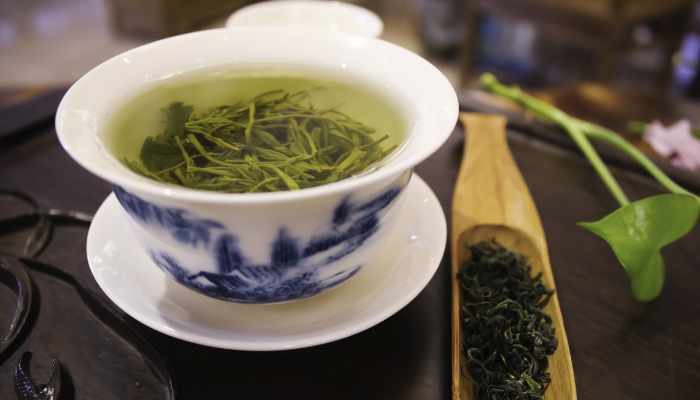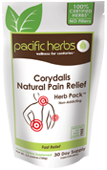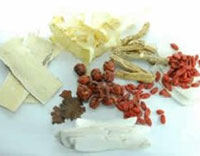 You may be wondering, is green tea good for menopause? Most of us have heard that green tea is good for us, but why? The answer is that drinking green tea provides many health benefits, including:
You may be wondering, is green tea good for menopause? Most of us have heard that green tea is good for us, but why? The answer is that drinking green tea provides many health benefits, including:
- Heart health — drinking tea is associated with lowering one’s risk of heart attack and stroke
- Bone health — antioxidant and anti-inflammatory activity of green tea help diminish bone loss
- Oral health — green tea is a natural flouride source which helps decrease tooth decay
- Weight loss — the catechins in green tea produces thermogenesis (heat in the body related to burning calories)
- Cancer prevention — the catechins in tea prevent cell mutation and reduce tumor formation
But you may also be wondering, is green tea good for menopause? The answer is yes! Green tea can help balance your hormones.
- Good for Menopause! — The biochemicals in green tea can change a woman’s estrogen metabolism, and as you may know, estrogen dominance is undeniably linked to breast cancer.
Researchers, led by Dr. Barbara Fuhrman of the NIH’s (National Institutes of Health) Cancer Institute, tested urinary estrogens and metabolites among 181 Japanese American women from California and Hawaii. Of these healthy women, 72 were postmenopausal. Along with urinary testing, personal interviews were taken, and each woman’s consumption of green tea, black tea, coffee and soda were recorded, measured, and adjusted in respect to caffeine consumption.
Amazingly, postmenopausal women who drank green tea daily had 20% less urinary estrone and 40% less urinary estradiol levels (meaning these women metabolized estrogen better). It was found that black tea did not produce the same results as green tea, and interestingly, caffeine consumption did not change the results.
Even more interesting, and perhaps concerning for pre-menopausal women, was the result that the estrogen levels of pre-menopausal women did not respond to green tea at all.
So, now that you know the answer to is green tea good for menopause, what does it all mean?
 What should you do with this information?
What should you do with this information?
Well, if you are postmenopausal, drink green tea! It will help metabolize estrogen and can help in the prevention of breast cancer.
If you are pre-menopausal, drink green tea! Even though it will not have the same cancer-reducing results, green tea still has wonderful health benefits. Try other, more natural remedies for PMS symptoms, instead of using the birth control pill (which increases risk of breast cancer).
If you are experiencing symptoms of the change in life we call “menopause” (technically it is “perimenopause”), drink green tea! Remember to steer clear of HRT (hormone replacement therapy) because it too is associated with increased risk of breast cancer. Instead, try Menopause Relief Herb Pack for uncomfortable symptoms such as hot flashes, night sweating, insomnia, headaches, and mood swings.
Join the Rock Your Menopause 7 day challenge, for FREE!
Want to learn more? Get free Menopause Relief advice straight to your inbox with the Rock your Menopause 7 Day Challenge!
What’s discussed in the 7 Day Challenge?
- Eastern Medicine health tips you don’t hear about.
- Why green and clean beauty products.
- How to find a fondness for fiber.
- Why a daily BM is a must.
- The difference between PRE and PRO-biotics.
- How to find fermented foods you’ll love & why you need them.
- Why eating hormones is off limits.
- Explore the pro’s & con’s of bio-identical vs HRT hormone therapy.
Head over to RockYourMenopause.com and sign up for the free challenge now!
References
Fuhrman BJ, Pfeiffer RM, Wu AH, Xu X, Keefer LK, Veenstra TD, Ziegler RG. Green tea intake is associated with urinary estrogen profiles in Japanese-American women. Nutr J. 2013 Feb 15;12(1):25.
Yang CS, Wang X, Lu G, Picinich SC: Cancer prevention by tea: animal studies, molecular mechanisms and human relevance. Nat Rev Cancer2009, 9(6):429–439.
Case Adams is a California Naturopath and holds a Ph.D. in Natural Health Sciences. His focus is upon science-based natural health solutions. He is the author of 20 books on natural health and numerous print and internet articles. His work can be found at http://www.caseadams.com.
Disclaimer: This article is not intended to provide medical advice, diagnosis or treatment. Views expressed here do not necessarily reflect those of GreenMedInfo or its staff.




 If you’ve been suffering from PMS and menstrual cramps, adding a 1 gram capsule of mixed essential fatty acids to your daily diet could help reduce your symptoms say’s a group of researcher in Brazil. This is not the first research to link PMS and essential fatty acid (EFA) intake. Since our bodies can only produce fatty acids, (long chain molecules) from the foods we eat, then our bodies will be deficient if
If you’ve been suffering from PMS and menstrual cramps, adding a 1 gram capsule of mixed essential fatty acids to your daily diet could help reduce your symptoms say’s a group of researcher in Brazil. This is not the first research to link PMS and essential fatty acid (EFA) intake. Since our bodies can only produce fatty acids, (long chain molecules) from the foods we eat, then our bodies will be deficient if